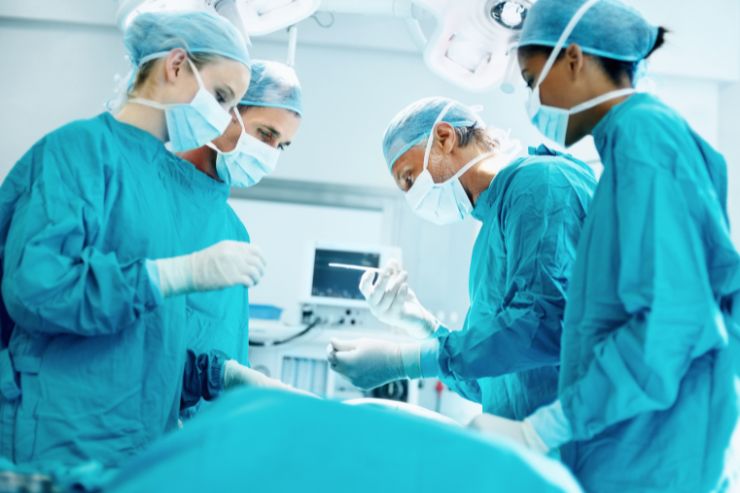
The Department of Neuro and Spine Surgery at Sri Ganga Emergency and Multispeciality Hospital specializes in treating a wide range of neurological and spinal disorders. This department combines cutting-edge technology with expert medical professionals to provide comprehensive care, from diagnosis through rehabilitation.
Comprehensive Neurosurgical Care: The department provides advanced surgical treatment for conditions affecting the brain, spinal cord, and peripheral nerves. This includes management of brain tumors, aneurysms, head injuries, and congenital neurological disorders.
Advanced Spine Surgery: Surgeons specialize in treating spinal disorders such as herniated discs, spinal stenosis, spondylolisthesis, spinal fractures, and deformities like scoliosis. The focus is on minimally invasive surgical techniques, which result in less pain and faster recovery.
Interventional Neuroradiology: This service uses minimally invasive techniques to treat vascular diseases of the brain and spine, including aneurysms, arteriovenous malformations (AVMs), and stroke.
Pediatric Neurosurgery: Specialized care for children with neurosurgical conditions such as congenital malformations, craniosynostosis, and spinal deformities.
Functional Neurosurgery: Treatment options for chronic pain, movement disorders such as Parkinson’s disease, and epilepsy using techniques like deep brain stimulation (DBS) and nerve stimulation.
Neuro-Trauma Care: Emergency treatment for traumatic brain and spinal cord injuries, including acute surgical interventions and stabilization.
Craniotomy: This is a surgical procedure to open the skull to access the brain for removing tumors, clipping aneurysms, or relieving pressure after trauma.
Laminectomy: A common spinal surgery that involves the removal of part of the vertebral bone called the lamina to relieve pressure on the spinal cord or nerves.
Microdiscectomy: Specifically for herniated spinal disc removal. It is a minimally invasive procedure where only the portion of the disc that is pinching the nerve is removed.
Spinal Fusion: A surgery to join two or more vertebrae into a single structure to stabilize the spine and alleviate chronic pain due to movement between the vertebrae.
Deep Brain Stimulation (DBS): Used primarily for the management of Parkinson’s disease symptoms. This involves implanting electrodes within certain areas of the brain and connecting them to a generator implanted in the chest.
Vascular Surgery for Stroke Prevention: This includes carotid endarterectomy and intracranial stenting to prevent strokes by improving blood flow to the brain.